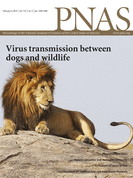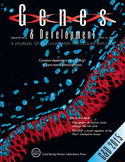![]() Genetics and Molecular Research, an online-only journal, has retracted two articles about gastric cancer by a group of Iranian researchers who appear to have put their own names on other people’s data.
Genetics and Molecular Research, an online-only journal, has retracted two articles about gastric cancer by a group of Iranian researchers who appear to have put their own names on other people’s data.
Both articles were published in 2014. One was titled “Absolute quantification of free tumor cells in the peripheral blood of gastric cancer patients;” the other, “ZNF797 plays an oncogenic role in gastric cancer.” The list of authors on the two papers isn’t identical, but both papers share a few in common, including the same two last authors: F. Ghasemvand and S. Heidari-Keshel.
It turns out, Saeed Heidari-keshel wasn’t down with other people’s data, and alerted the journal to the problem.
Here’s more from the retraction notice for the first article, which was found to be “substantially equal” to another paper: Continue reading Genetics journal isn’t down with O.P.D. – stealing other people’s data







